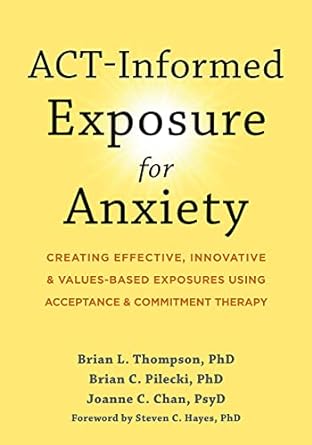
Post-Traumatic Stress Disorder (PTSD) remains a significant mental health challenge, especially among veterans. A recent study published in the Journal of Contextual Behavioral Science delves into the interplay between psychological inflexibility, mindfulness, and self-compassion in the context of PTSD. The study, led by a team of researchers including Jason Luoma PhD from Portland Psychotherapy, provides critical insights into how these psychological mechanisms may influence PTSD symptoms and treatment outcomes.
Psychological Inflexibility: A Barrier to Recovery
Psychological inflexibility, a core concept in Acceptance and Commitment Therapy (ACT), is defined as the tendency to avoid or escape from uncomfortable internal experiences such as distressing thoughts, emotions, or memories and the impacts this has on people’s abilities to live according to their values and goals. This avoidance can lead to a range of maladaptive behaviors, which exacerbate PTSD symptoms rather than alleviate them. The study found that veterans with PTSD exhibited significantly higher levels of psychological inflexibility compared to those without PTSD. This finding underscores the importance of targeting psychological inflexibility in therapeutic interventions, as it may be a key barrier to recovery.
The Role of Mindfulness in Managing PTSD
Mindfulness, which involves focused and nonjudgmental attention to the present moment, has been widely promoted as a beneficial practice for managing PTSD symptoms. However, the study presents a nuanced view of how different facets of mindfulness interact with PTSD. Notably, the “observing” facet of mindfulness was associated with higher levels of PTSD symptoms, while the “describing” facet, which involves putting internal experiences into words, was linked to lower PTSD severity.
These findings suggest that not all mindfulness practices may be equally beneficial for individuals with PTSD. For example, mindfulness practices that emphasize observing one’s experiences without judgment might inadvertently increase hypervigilance or distress in some individuals with PTSD. However, practices that encourage describing and verbalizing experiences may help process trauma and reduce symptoms.
Self-Compassion: A Complex Relationship with PTSD
Self-compassion, which involves treating oneself with kindness and understanding in times of difficulty, has been found to have a generally protective effect against PTSD. However, the study’s findings complicate this narrative. While initial analyses showed that higher levels of self-compassion were associated with lower PTSD symptoms, this relationship diminished when psychological inflexibility was controlled for. This suggests that self-compassion alone may not be sufficient to counteract the effects of psychological inflexibility in individuals with PTSD.
This finding highlights the need for a more integrated approach in PTSD treatment, where self-compassion is combined with interventions aimed at reducing psychological inflexibility. Such an approach could potentially provide more robust and enduring relief from PTSD symptoms.
Implications for PTSD Treatment
The findings from this study have important implications for the treatment of PTSD, particularly among veterans. By identifying psychological inflexibility as a significant predictor of PTSD severity, the research suggests that treatments like ACT, which specifically target this inflexibility, may be particularly effective. Additionally, the nuanced understanding of mindfulness and self-compassion offered by the study can help clinicians tailor their interventions more effectively to meet the needs of their clients.
For veterans struggling with PTSD, addressing psychological inflexibility through targeted therapeutic interventions could be a crucial step toward recovery. Moreover, combining mindfulness practices that emphasize description and verbalization with self-compassion training may offer a more comprehensive approach to reducing PTSD symptoms.





